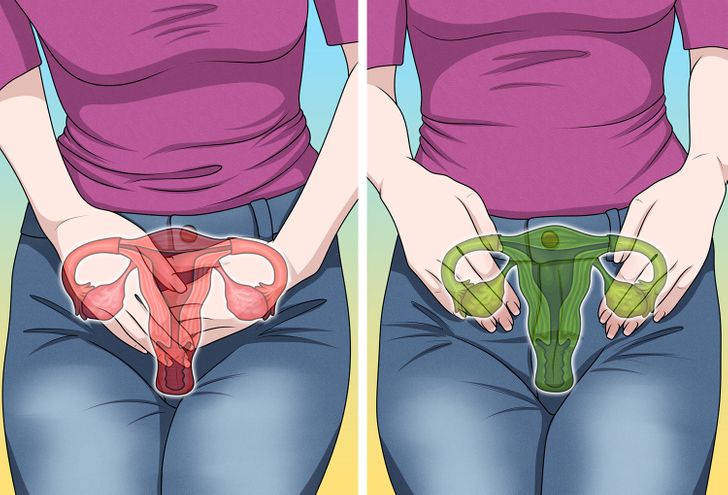Have you ever found yourself repeatedly hitting the snooze button each morning, only to feel groggy and disoriented all day? While those extra minutes of sleep might seem harmless, they can actually disrupt your body’s natural rhythms and cause a range of negative health effects. In this comprehensive article, we’ll explore what happens to your body when you keep hitting the snooze button and why this common habit can undermine your overall well-being.
Backed by reputable sources such as Mayo Clinic, WebMD, and Harvard Health Publishing, the insights provided here are designed to help you understand the science behind your morning routine and offer actionable tips for a healthier lifestyle.
The Negative Impact of Hitting the Snooze Button
It Might Mess Up Your Sleep Cycle – How Hitting Snooze Disrupts Your Circadian Rhythm

One of the primary functions of your body is regulated by your circadian rhythm—a natural, internal process that governs your sleep-wake cycle over a 24-hour period. Consistently hitting the snooze button can throw off this delicate balance.
Key Points:
Interrupted Sleep Stages: When you hit snooze, you may briefly re-enter lighter sleep stages instead of completing your natural sleep cycle. This interruption can prevent your body from obtaining the deep, restorative sleep it needs.
Delayed Wake-Up Time: Constantly postponing your wake-up time can confuse your body’s internal clock, making it harder to fall asleep at night and wake up refreshed in the morning.
Sleep Inertia: The groggy feeling you experience after hitting snooze—known as sleep inertia—is a direct result of waking up from a deep sleep phase, leaving you disoriented and less alert.
According to Harvard Health Publishing, sleep inertia can last for up to 30 minutes after waking, significantly impacting your productivity and mood for the rest of the day. Establishing a consistent wake-up time is critical for maintaining a healthy sleep cycle and ensuring you get quality rest.
You May Feel More Tired Throughout the Day – The Impact of Sleep Deprivation and Fragmentation

While those extra minutes of sleep might seem like a bonus, they can actually make you feel more tired over the course of the day. The reason? Fragmented sleep is far less restorative than a continuous, uninterrupted sleep period.
How Fragmented Sleep Affects You:
Reduced Cognitive Function: Interruptions in your sleep cycle can impair cognitive functions like memory, attention, and decision-making. Research from WebMD shows that even mild sleep deprivation can hinder your ability to concentrate and perform tasks efficiently.
Increased Fatigue: The grogginess from sleep inertia compounds over time, leading to chronic fatigue and a persistent sense of tiredness throughout the day.
Mood Disorders: Sleep fragmentation has been linked to mood swings, irritability, and even depression. A lack of continuous sleep can disrupt the balance of hormones that regulate mood, such as serotonin and cortisol.
Maintaining a regular sleep schedule without excessive snooze interruptions is key to ensuring you wake up energized and ready to tackle the day.
It’s Bad For Your Gut Health – How Disrupted Sleep Can Affect Your Digestive System

The connection between sleep and gut health is more significant than you might think. A disrupted sleep cycle can have a cascading effect on your digestive system, leading to various gastrointestinal issues.
Digestive Disruptions from Poor Sleep:
- Altered Gut Microbiome: Your gut is home to trillions of bacteria that play a crucial role in digestion, immunity, and even mood regulation. Sleep disturbances can disrupt this delicate balance, leading to an imbalance known as dysbiosis. The National Institutes of Health (NIH) has documented links between sleep quality and the composition of the gut microbiota.
- Increased Inflammation: Poor sleep increases inflammation in the body, which can exacerbate conditions like irritable bowel syndrome (IBS) and acid reflux.
- Poor Nutrient Absorption: When your body is in a constant state of sleep deprivation, it can impair the process of nutrient absorption, leading to deficiencies that affect overall health.
Incorporating healthy sleep habits not only improves your rest but also supports the optimal functioning of your digestive system.
Your Skin May Become More Sensitive – The Effects of Sleep on Skin Health

Sleep is a vital component of skin regeneration and repair. When your sleep is fragmented by constant snooze button hits, your skin is among the first to show the negative effects.
Skin Consequences of Poor Sleep:
Accelerated Aging: Sleep is essential for the production of collagen, a protein that keeps your skin firm and elastic. A disrupted sleep cycle can lead to reduced collagen production, resulting in premature wrinkles and fine lines.
Increased Sensitivity and Inflammation: Lack of restorative sleep can cause your skin to become more sensitive and prone to irritation, redness, and breakouts. Studies cited by Mayo Clinic have shown that poor sleep can exacerbate inflammatory skin conditions like eczema and acne.
Dull Complexion: Without sufficient sleep, your skin may not repair itself properly, leading to a dull, tired appearance and dark circles under your eyes.
Prioritizing uninterrupted sleep not only benefits your overall health but also keeps your skin looking vibrant and youthful.
It Might Affect Your Immune System – The Role of Sleep in Protecting Your Health

Your immune system relies heavily on quality sleep to function effectively. Constantly disrupting your sleep with repeated snooze attempts can compromise your body’s ability to fight off infections and diseases.
Immune System Implications:
Decreased Immune Response: During sleep, your body produces cytokines—proteins that help fight infection and inflammation. Insufficient sleep can lead to a lower production of these protective proteins, making you more vulnerable to illnesses.
Increased Risk of Chronic Illness: Over time, a weakened immune system can contribute to the development of chronic conditions such as heart disease, diabetes, and even certain cancers.
Longer Recovery Times: When your body isn’t well-rested, it struggles to repair itself. This means you may experience longer recovery times when you do fall ill.
For more detailed information on how sleep influences immunity, refer to resources like Harvard Health Publishing and the Mayo Clinic.
It Can Throw Off Your Menstrual Cycle – The Impact of Sleep Disruption on Hormonal Balance

For many women, irregular sleep patterns can have a profound effect on hormonal balance, which in turn can disrupt the menstrual cycle. The snooze button habit might seem trivial, but its cumulative effect on sleep quality can interfere with your body’s hormonal regulation.
Hormonal Effects of Poor Sleep:
- Disrupted Hormone Production: Sleep plays a critical role in the regulation of hormones such as estrogen, progesterone, and cortisol. When sleep is compromised, the delicate balance of these hormones can be thrown off, leading to irregular menstrual cycles.
- Increased Menstrual Pain: Poor sleep has been linked to increased levels of inflammation and stress, which can intensify menstrual cramps and other symptoms associated with menstruation.
- Long-Term Reproductive Health: Chronic sleep disruption can potentially affect reproductive health over the long term. Maintaining regular, uninterrupted sleep is essential for hormonal balance and overall menstrual health.
Studies from WebMD and Harvard Health Publishing have highlighted the importance of sleep in regulating female hormones and maintaining a regular menstrual cycle.
Integrating Healthy Sleep Practices into Your Daily Routine
Improving your sleep quality doesn’t have to be a daunting task. With a few strategic changes to your routine, you can minimize the negative effects of hitting the snooze button and reap the benefits of uninterrupted, restorative sleep.
Actionable Tips for Better Sleep:
- Set a Consistent Wake-Up Time: Try to wake up at the same time every day, even on weekends. This consistency helps regulate your circadian rhythm and reduces the urge to hit snooze.
- Create a Relaxing Bedtime Routine: Engage in calming activities before bed, such as reading, meditating, or taking a warm bath. This can signal your body that it’s time to wind down.
- Optimize Your Sleep Environment: Ensure your bedroom is conducive to sleep—cool, dark, and quiet. Investing in a comfortable mattress and pillows can also make a significant difference.
- Limit Screen Time Before Bed: The blue light emitted by phones, tablets, and computers can interfere with your body’s production of melatonin, a hormone that regulates sleep. Try to avoid screens at least an hour before bedtime.
- Practice Mindfulness and Stress Reduction: Techniques like meditation and deep-breathing exercises can help reduce stress and promote better sleep. The National Sleep Foundation offers a range of resources to help you develop a personalized sleep strategy.
By adopting these healthy sleep practices, you can break the cycle of repeatedly hitting the snooze button and enjoy the benefits of a well-regulated sleep pattern.
The Broader Impact of Good Sleep on Overall Health
It’s important to recognize that quality sleep is not just about feeling rested—it plays a pivotal role in your overall health. A well-rested body is better equipped to handle stress, fight off infections, and perform optimally in daily tasks.
Long-Term Benefits of Quality Sleep:
- Enhanced Cognitive Function: Consistent, high-quality sleep improves concentration, memory, and problem-solving skills.
- Emotional Stability: Good sleep helps regulate mood and reduce the risk of depression and anxiety.
- Physical Health: From better heart health to improved metabolism, the benefits of quality sleep extend to nearly every aspect of your physical well-being.
- Improved Productivity: Waking up refreshed sets a positive tone for the day, leading to greater productivity and overall life satisfaction.
For further insights into the importance of sleep, consider exploring reputable resources such as Mayo Clinic and Harvard Health Publishing, which offer comprehensive research and practical advice on sleep health.
Conclusion – Taking Control of Your Morning Routine for a Healthier You
Hitting the snooze button might seem like a harmless habit, but its cumulative effects on your body can be far-reaching. From disrupting your sleep cycle and leaving you feeling tired throughout the day to impacting your gut health, skin sensitivity, immune system, and even menstrual cycle, the hidden costs of fragmented sleep are significant.
By understanding these impacts and adopting strategies to maintain a consistent sleep schedule, you can reclaim your mornings and set the stage for improved overall health. Start by making small changes to your routine—set a fixed wake-up time, create a relaxing bedtime ritual, and make your sleep environment as comfortable as possible. Over time, these adjustments can lead to a more restful night’s sleep and a healthier, more energetic you.
For additional tips on improving sleep quality and managing sleep-related issues, trusted sources like WebMD and National Sleep Foundation provide a wealth of information. Embrace the power of quality sleep, and enjoy the transformative benefits it brings to your health and well-being.
Take control of your mornings today and see how making the simple decision to stop hitting the snooze button can lead to a more vibrant and productive life.
Preview photo credit Shutterstock.com









